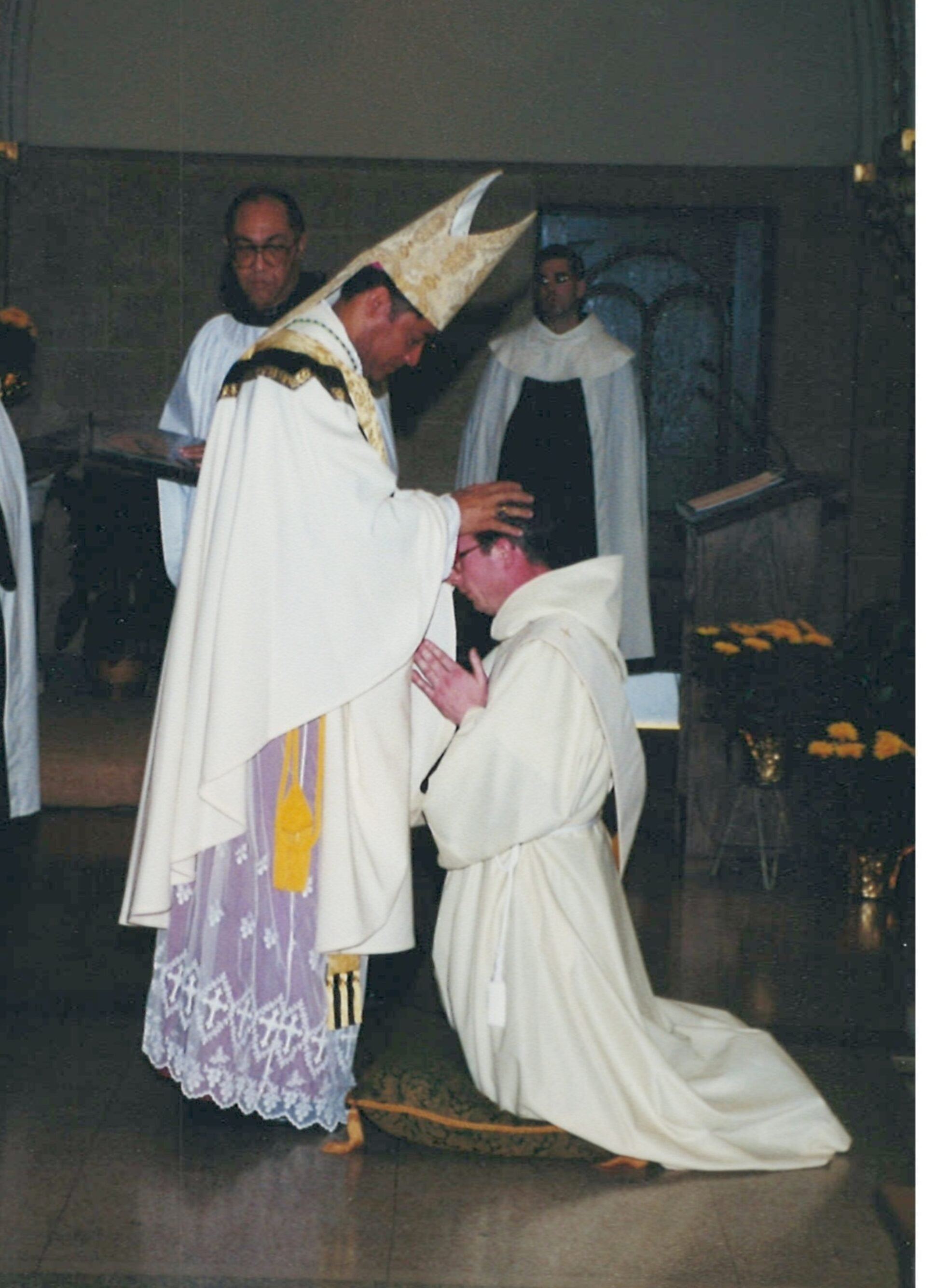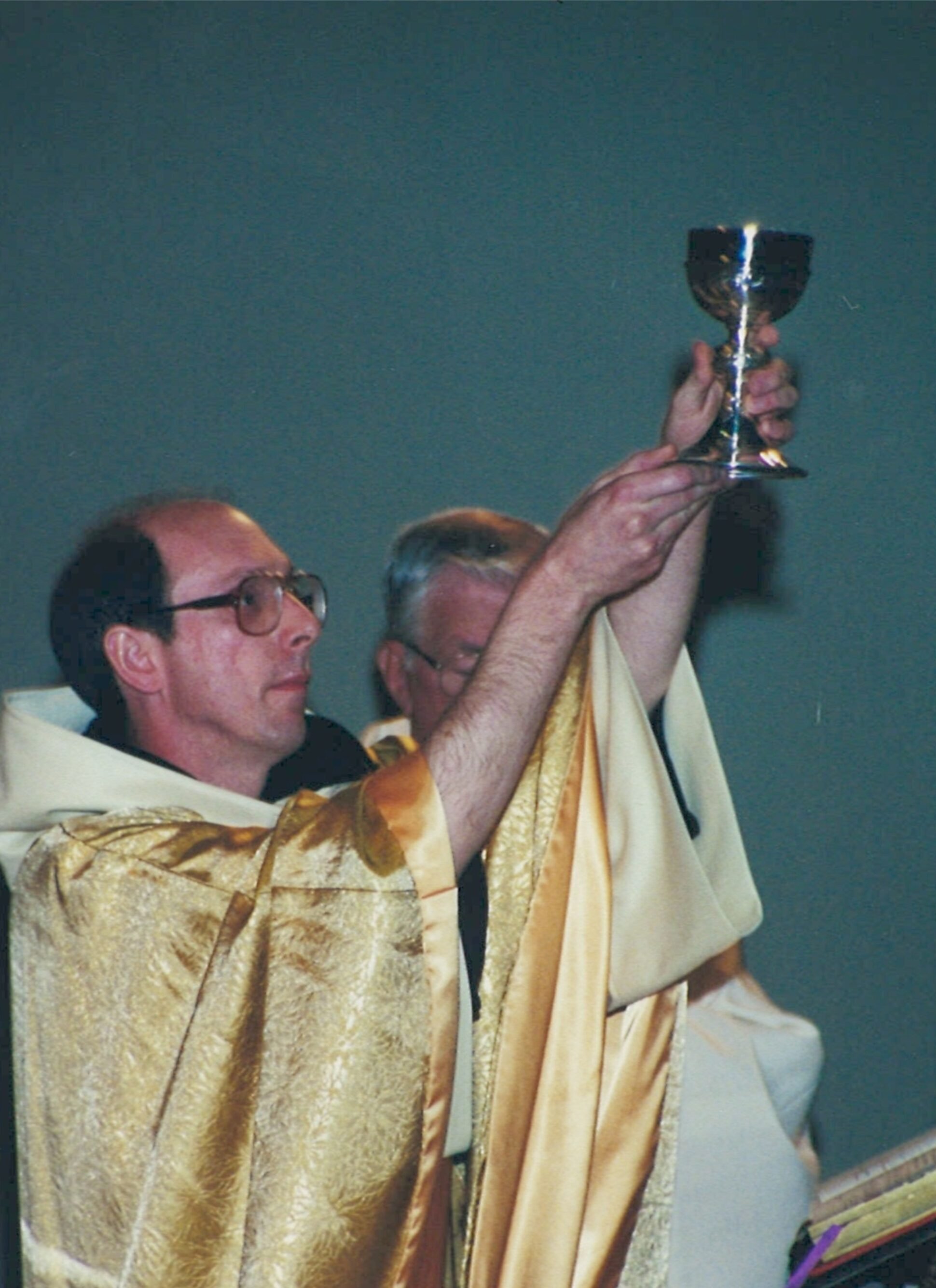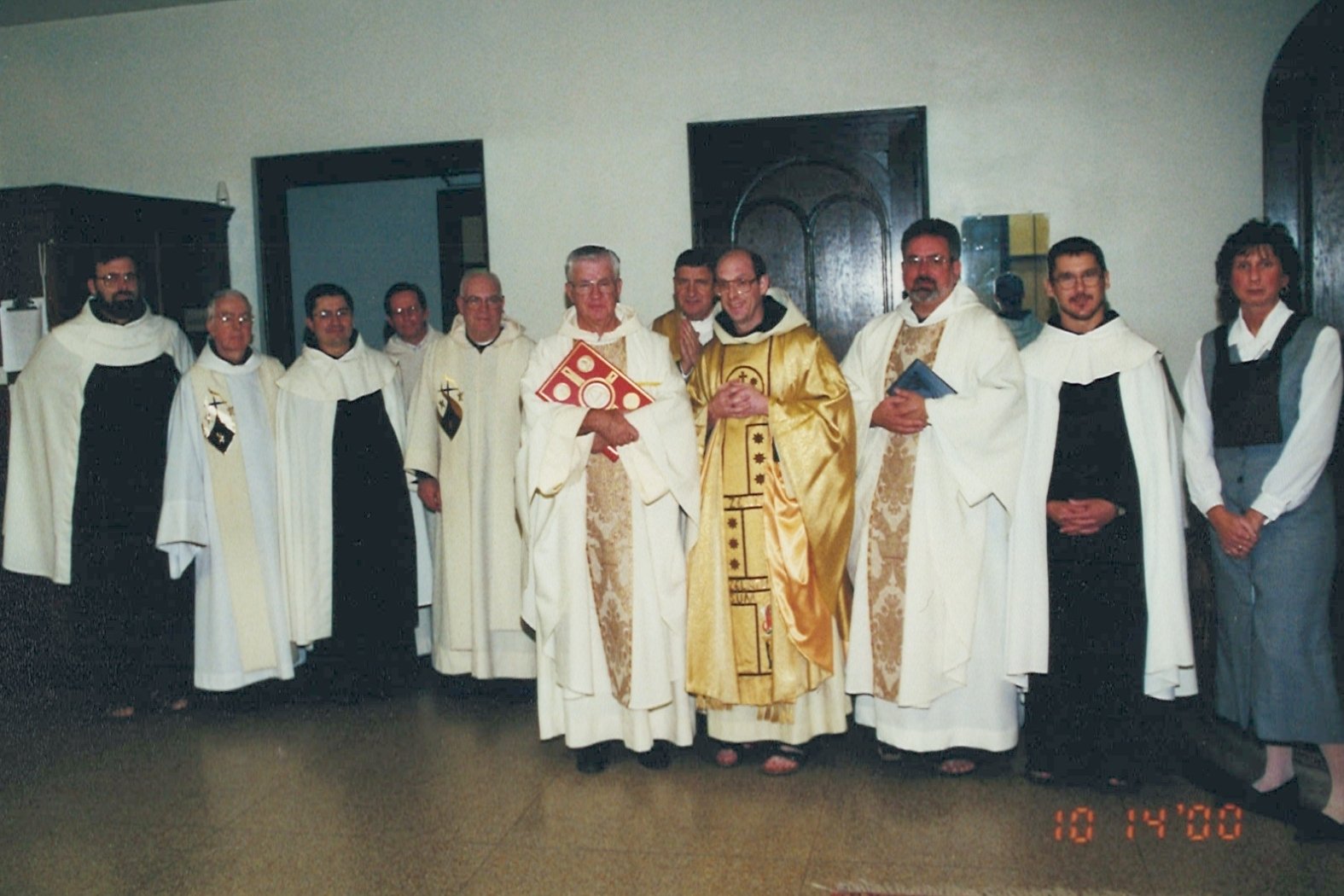We proclaim at the heart of every Mass—after lifting up our hearts to the Lord—that it is “truly right and just, our duty and our salvation, always and everywhere to give [God] thanks.”
As part of the Eucharistic Revival, today is a day of special thanksgiving to God for the awesome gift of Jesus Christ, who remains with us until the end of time—and even within us—in the Sacrament of the Altar.
It is also a day to thank God for the gift of the priesthood, through which Christ gives us Himself in the Eucharist, forgives our sins in the Sacrament of Penance, and pours out His life abundantly upon us.
A Milestone of Gratitude
Today, I give thanks to God for the 25th anniversary of my priestly ordination, which took place at the Basilica of the National Shrine of Mary Help of Christians. I was ordained by Auxiliary Bishop Joseph Perry, who has always been a role model for me.


I want to thank the community of Discalced Carmelites—my family in faith—and Saint John’s Seminary. I also wish to thank all the UMass Boston students and alumni whom I consider part of my extended family.
I give thanks to God for the gift of the Church in heaven and on earth—for nourishing my vocation as a Christian and as a priest—and for all the saints, priests, religious, consecrated persons, spiritual directors and directees, parishioners, and faithful who have encouraged, formed, and allowed me to serve them in God’s name.
I thank God for the gift of the domestic Church in which I was raised—for my mom and dad, and for my sisters, Dawn and Shari.
I thank all the priests and nuns who have been part of my life. It has been an adventure—perhaps a Eucharistic adventure. It is a race, an adventure I continue to run each day.
Consistency beats intensity.

Doing Things Right vs. Doing the Right Things
We have to ask ourselves a question: Maybe I’m doing things right consistently, but am I doing the right things?
I might be efficient, but am I effective? Efficiency is concerned with doing things right; effectiveness is concerned with doing the right things.
Everyone is busy, but not everyone is productive. Everyone has the capacity to be efficient, but not all know what it means to be effective.
St. Paul worked hard every day. In his final words he writes, “I am already being poured out like a libation; I have competed well, I have finished the race, I have kept the faith.” St. Paul was efficient—but even more, he was effective. He did not just run a race; he ran the right race.
There is nothing so futile as working hard on the wrong things.
The Pharisee and the Tax Collector
The Gospel gives us another example of a hard worker—the Pharisee Jesus describes entering the temple. The Pharisees were deeply dedicated people, committed to the 613 laws of the Old Testament and to many oral traditions besides. They were constantly vigilant and constantly busy.
The Pharisee in the parable goes to the temple and says, “I fast twice a week” (though only one fast was required) and “I pay tithes on my whole income” (though only a portion was expected). He’s doing the work, but he’s missing the point.
Going through the motions won’t help us unless they are the right motions.
Many people reach success only to realize, once they’ve climbed the ladder, that they don’t like the view. How we spend our time is how we spend our lives. Therefore, don’t practice what you don’t want to become.
What was the Pharisee’s error? Jesus tells us.
The Pharisee and the tax collector both go up to the temple to pray. So far, so good—but the Pharisee doesn’t actually pray. Scripture says he “spoke this prayer to himself.” He prays about himself, to himself, listing his accomplishments.
In essence, the Pharisee says: “God, I thank you that I do not need you.”
That is the heart of self-reliance. But self-reliance inevitably leads to self-righteousness—blindness to our need for God and to what God has done in our lives.
Contrast this with St. Paul. He, too, was busy and accomplished, but at the end of his life he writes to Timothy, “From now on the crown of righteousness awaits me, which the Lord will award me.”
He doesn’t say he earned it—he says God will give it to him. When he was in trouble, God stood by him and gave him strength. “The Lord will rescue me from every evil threat,” he says, “and will bring me safe to His heavenly kingdom.”
Paul gives credit to God for everything—no trace of self-reliance, only gratitude.
The Pharisee’s self-reliance led to self-righteousness; he was busy, but doing the wrong things. The tax collector, on the other hand, knew he wasn’t a good man—and because of that, he knew he couldn’t rely on himself.
Had he tried, he would have fallen into self-condemnation. Relying solely on ourselves leads us to see only our brokenness. We wonder: Why am I not better? Why am I not a saint yet?
The tax collector knew his weakness, and that’s why he told the truth before God. His prayer was about his need for God. He had nothing to boast about. He avoided self-condemnation by leaning into humility. He knew himself—but more importantly, he knew God.
This is the key: we can only avoid self-condemnation when we know both our brokenness and His mercy. When we recognize our failures but also His victory.
Our temptation is to focus on ourselves—our strengths or our weaknesses—as if we could untangle the knots on our own. Instead, we must look at our wounds and invite Jesus into them.
That is how hearts are changed.
How can I tell if I have the heart of a Pharisee or of a tax collector? What can I do?
I don’t want to be merely busy—I want to be fruitful. I don’t want to just do things right; I want to do the right things.
To do so means running the right race—trusting in the Father’s goodness and love. It means running consistently, in humility, knowing that God is everything.
This is true of the sinful woman in Luke 7. It is true of the good thief in Luke 23:39–43. It is true of all the little ones and the poor, who are saved not by their merits, but by God’s mercy.
St. Thérèse, St. Teresa, and countless others show us what it means to be faithful followers of Jesus.
God does not ask us to justify ourselves, because He Himself desires to justify us. He wants to re-establish the right relationship with us—the relationship of children who know they need their Father and who place all their hope in Him.
“Truly Right and Just”
In every Mass we proclaim that it is “truly right and just, our duty and our salvation, always and everywhere to give [God] thanks.”
May that thanksgiving not only be spoken with our lips, but lived out in our lives—faithfully, humbly, and with hearts lifted to the Lord.


